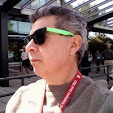I attended the NW Great Teaching Seminar this week and it was life changing. This seminar is part of the National Great Teachers Seminar Series. It lasted five days and was held at the amazingly serene and picturesque Menucha retreat in Oregon's Columbia River Gorge. There were over 30 other seminar participants!
 |
| Scenic views were readily available |
 |
| Jan Woodcock |
 |
| Mingling of ideas |
Exchanging these writings, we broke up into smaller groups and discussed the innovations and problems, using a Socratic questioning method designed to help the individual sort it out on their own. These papers create a great pool of knowledge, solutions and inspiration.
Then:
Emerging themes (throughout the rest of the seminar) -- themes that arose the first two days as we went over the Innovation and Problem papers.
And finally:
Large group discussions: giving teachers a chance to obtain crowd-sourced answers to questions.
 |
| Large group discussion |
 |
| Outdoor discussion in perfect weather |
 |
| Opportunities for exchange abounded |
Learning opportunities also consisted of small and large group communication and crowd-sourcing answers, games, interpretive dance along with time for recreation and building rapport. Recreation included hikes at Multnomah Falls and surrounding area, bike riding, reading and writing, etc. The meals were fabulous. All in all, this was one of the best learning experiences I have ever had. I was pushed out of my comfort zone, which in turn, created fallow ground for greater learning.
 |
 |
| Class of 2015 |
From the GTM website:
“The National Great Teachers Movement is called a ‘movement’ because it is not associated with, nor does it constitute a corporation or an organization of any kind. Thus, it serves no institutional or commercial interests. There is no headquarters or address, and there are no officials, owners, employees or politics. There are no manuals or handbooks, only a few simple guidelines [Editor’s Note: This web connection created by Steve Smith after the 2nd GT colloquium in 2001].
Everything is passed on by oral tradition in order to prevent the development of any form of true believership or fixed procedure, which might come to be followed to the letter and of which the educational profession would soon tire. The many annual Great Teachers Seminars throughout North America, and now in several foreign countries, exist and persist only because of the initiative and selfless ambition of people who want to share the experience with teachers in their own geographic area.”































.JPG)
.JPG)
.JPG)

.JPG)
.JPG)
.JPG)
.JPG)
.JPG)
.JPG)



